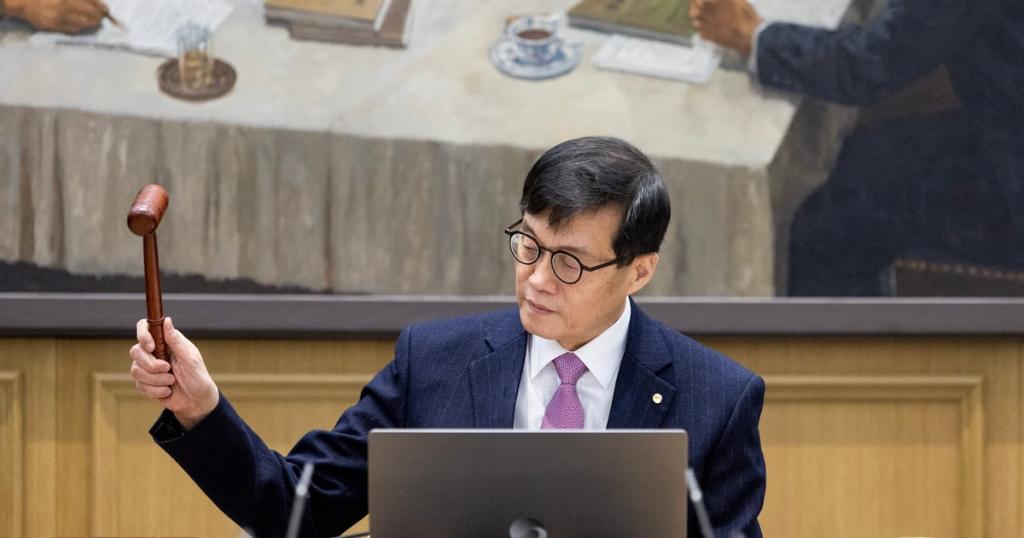UK Inflation Falls to 1.7% Signaling Economic Recovery Ahead
UK inflation has dropped to 1.7%, paving the way for potential interest rate cuts and a brighter economic outlook for households and businesses.

Key Points
- The UK inflation rate fell to 1.7% in September, its lowest since April 2021, driven by lower petrol prices and airfares.
- This decline raises expectations for potential interest rate cuts by the Bank of England
, which could ease borrowing costs for households and businesses.
- The upcoming budget decisions by Chancellor Rachel Reeves
will be crucial in maintaining economic momentum amidst ongoing challenges like rising food prices.
The recent announcement from the
(ONS) marked a noteworthy milestone in the UK's economic landscape as inflation fell to 1.7% in September 2024, its lowest level since April 2021. This decline comes after a peak inflation rate of 11.1% in October 2022, signaling a significant shift in the economic environment. As we delve into the latest figures, it's crucial to explore what this means for the Treasury, businesses, and households across the nation.

Understanding the Factors Behind Inflation Decline
The reported decrease in inflation can be attributed to several critical factors, primarily driven by significant reductions in petrol prices and lower airfares. In September, motor fuel prices plummeted by 10.4% compared to the previous year, while airfare costs also contributed to a 5% drop. This decline in transportation costs has alleviated some of the financial strains on consumers, which is especially encouraging as prices for essential items like food showed signs of acceleration, increasing to 1.9% in September.
The impact of geopolitical events such as the invasion of Ukraine and lingering effects of the Covid-19 pandemic are continuing to diminish. However, as we experience these shifts, the essential question arises: how will policymakers react to this evolving economic landscape?
The Implications for Government Policy and Interest Rates
The latest inflation data primarily holds significance as it influences the upcoming decisions by the Bank of England regarding interest rates. With inflation now below the target rate of 2%, expectations are mounting for a cut in interest rates during the upcoming Monetary Policy Committee (MPC) meeting. Analysts predict a potential reduction of 0.25%, which can ease borrowing costs for households and businesses alike.
This shift is particularly beneficial for mortgage holders, who have faced escalating costs in recent years. Furthermore, a reduction in interest rates could foster a more favorable environment for investment and stimulate economic growth, especially in areas such as public services and infrastructure, which are crucial as the UK approaches the autumn budget.
The Broader Economic Context and Future Considerations
As we navigate these changes, it’s essential to keep in mind that despite the positive news about inflation, challenges remain. The core inflation rate, which excludes volatile items like food and energy, still indicates pressures that require careful monitoring. The rising costs of basic necessities, particularly food, remain a concern for many households, especially those relying on benefits.
In fact, the September inflation figure will serve as a basis for adjustments to state benefits, meaning recipients can expect a rise of 1.7% in the coming year. Nonetheless, while this may provide some financial relief, ongoing food inflation presents a complicated picture.
Encouragement Amid Challenges
The path ahead may not be exempt from uncertainties. Potential geopolitical tensions, fluctuations in energy markets, and influences from global economic conditions could affect the UK’s inflation trajectory once again. However, there is room for optimism. The combination of lower inflation and expected interest rate cuts provides the UK with an opportunity to foster economic resilience and growth.
Rachel Reeves, the UK Chancellor, is poised at a critical juncture. With upcoming decisions around tax adjustments and public spending, her ability to navigate these challenges creatively could set the stage for a recovery that revitalizes the economy. Should wages continue to grow and employment prospects remain stable, these elements will undoubtedly help combat any immediate hardships faced by households.
The recent declines in inflation represent a pivotal moment for the UK economic landscape. As the government prepares for its budgetary decisions while navigating this new terrain, the focus will need to be on sustaining this momentum and ensuring that the benefits of these developments reach those who need them most.


